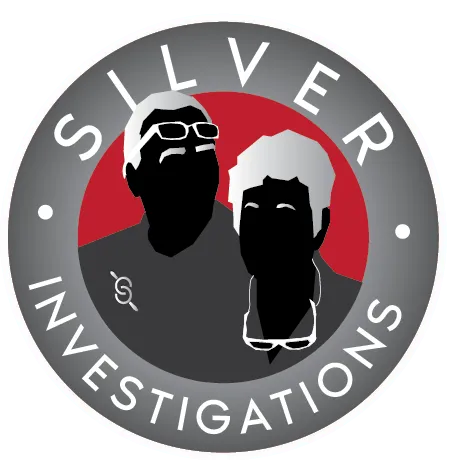Writer's Block doesn't exist.
That's heresy in the writing world, for everyone who doesn't think like a professional writer.
Professional writers can't afford to have writer's block. They discovered ways to analyze the problems and have come up with multiple solutions.
We have three forms of Writer's Block that we discuss in Think like a Pro: One Simple Injunction ~ Writer's Block doesn't Exist.
This episode looks at Writer's Refusal, a stoppage of our work but one that is not only easy to diagnose but also easy to solve.
Listen on Podbean
apple podcast https://podcasts.apple.com/us/podcast/the-write-focus/id1546738740%20
spotify https://open.spotify.com/show/4fMwknmfJhkJxQvaaLQ3Gm?si=0GFku2PbShWXiDhRp7JaDQ
YouTube Channel Writers Ink
Books - YouTube or direct to the episode which is an mp4 with a few slides to prevent glitching.
Show Notes
- How We Know Writer's Block Doesn't Exist
- Writer's Refusal definition
- Solutions
- Desperate to Escape
- Writing Vacation
- Writing Play
- Grind-Escape examples follow the resources
- Over-Scheduled
- Breakaway from Project
- Breakaway from Genre
- Breakaway from Words
Resources
Think like a Pro by M.A. Lee, copyright 2017, with
the revised edition in 2018.
2 Examples of a Grind-Escape
Set-Up
My starting word was MANIPULATION. I wrote this, with my students, in April, which means this journaling activity had been running for several months. We were studying William Shakespeare's Romeo and Juliet, which is the R&J in the piece. I changed the student's name to Clinton. I haven't corrected anything else, just reproduced exactly what I wrote
Sample 1
Manipulation. Appropriate manipulation devices. Devices to rid self of unwanted. Poor Clinton. He doesn't use any of our suggestions. mommy manipulation evil stepmother fairy tales like what R&J is based upon -- with tragic endings. Clinton is too nice. Why is it that women are never attracted to the nice guys nice guys finish last--sugar daddy is a 3rd--nice guys have to work at getting wives. The same as nice girls and then what they get is not what they wanted to they must swallow their anger / discouragement / unhappiness and that affects their health. Love at 1st sight. R had visual lust and proclaimed it love. J fell in love with his wooing. An interesting question, what made these 2 fall in love? How enduring would that love have been? After the initial attraction, how did their love grow and become stronger? Love love love love chemical reaction -- hormones gone haywire. Only after do we find commonalities that make us stay attracted. J is entranced by her 1st kiss R by her beauty. Something makes it more the tug at heart strings, the need for the other, the excitement, adrenaline rush. Infatuation all we have or does it develop into shared experiences that unite two. Love love love lost love lost love lost opportunities. Last opportunities unseized, ungrabbed become lost opportunities. Regrets but last days can also be regret as think of everything will leave, people won't see anymore. Facing life changes. A little scary, anxious, trepidation. A little like birdling takes its last flight from the nest. Practice runs all over.
Now, I write fast, and this exercise had become habit. When I look back in that journal, the writing for early September is half this length. In this passage you can see where twice I have hit static. I have gone from manipulation to fairy tales and love then lost opportunities and regrets, winding up with a bird leaving its nest and launching into the world. That's my brain talking to me, not me talking to my brain.
This exercise becomes easier the more you do it. Here's an example from September of that year.
The students' starting was Summer's End. That's not where I started. I was frustrated and looking forward to a weekend trip that would take me away from the work-grind.
Summer's End. Explaining and explaining what to do. 3 minutes then 3 more minutes of a simple instruction. Over and over. Like rain pouring down, drop after drop, word after word, idea after idea. Now you're playing? Rain. Weather. How cold will it be? Rain. Need suit, towel, robe, slippers for wet, clothes, minimal makeup, sleeping bag and thermarest, what else? Really lightweight, Nordic bag, want to walk in morning, boots, hiking socks. Slicker? Need to buy a slicker type parka. Now this again was avoidance. 2ce. Play then list. What are you afraid of? What about rain makes you afraid? Rain rain rain rain rain following runlets running down the hillside collecting in ditches run-off gathers little trickles of water that become streams and streams become creeks to rivers to lake to the sea continuous ocean waves in and out a steady rocking movement cradle breathing tide and spin of earth 2 great forces making the great forces of earth move and drift and shift and affect people daily. Air and water. Breathing. Needing air. Needing others. Need to need others. Need to learn to rely on others. Need to learn to receive not just give.
The above example is shared to show the difficulty of the exercise as well as its revelatory experience. Again, you can see static occur, you can see how I was directing my thoughts with the list before I took myself to task (calling it avoidance) and forced myself to follow the exercise. Finally, you can see how the free-flow of ideas finally led to a significant revelation.
For killing the work grind, however, I believe this escape works best when the free-flowing lasts for 15 solid minutes. However, the seven-minute exercise can become a weekly habit that will get you in touch with your right-brain creative muse.







